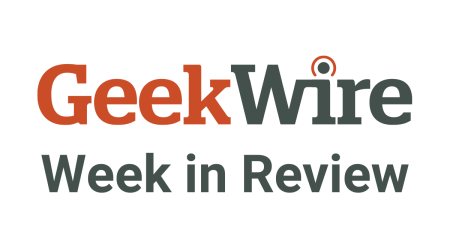AI Toolbox: How Yifan Zhang, AI2 Incubator Director, Leverages AI to Boost Productivity
In the ever-evolving landscape of artificial intelligence, new tools emerge weekly, promising to revolutionize how we work and live. Yet amidst this technological abundance, identifying truly valuable tools that enhance productivity can be challenging. Yifan Zhang, the managing director at Seattle-based AI2 Incubator, has discovered several AI solutions that have transformed her workflow, enabling her to navigate her demanding role with greater efficiency and effectiveness. As someone at the forefront of AI innovation and investment, Zhang’s insights offer valuable perspective for professionals seeking to integrate AI thoughtfully into their daily operations. Her experience demonstrates how carefully selected AI tools can address specific pain points in professional life, from communication bottlenecks to the challenges of context-switching in a fast-paced environment.
Voice dictation has become an essential part of Zhang’s communication strategy through Wispr Flow, which she uses primarily for composing casual emails and Slack messages. This tool has significantly enhanced her response time, effectively doubling her communication speed. “It’s probably 2x-ed my speed of response,” Zhang notes, highlighting how voice dictation has become so integral to her workflow that she finds herself frustrated when applications don’t offer this capability. This simple yet powerful functionality addresses a common challenge for busy professionals: the need to maintain responsive communication across multiple channels without getting bogged down in typing. For Zhang, who must maintain connections with founders, investors, and team members, the ability to quickly dictate thoughts rather than type them represents a meaningful efficiency gain that compounds throughout her workday.
The cognitive load of context-switching presents a significant challenge for investors like Zhang, who must rapidly shift between different companies, technologies, and business models. To manage this, she relies on Granola for enhanced meeting note-taking. What distinguishes this tool is its ability to incorporate her personal notes while adding substantial detail without requiring video recording of every interaction. “Having access to Granola notes has been key to my productivity,” Zhang explains, underscoring how comprehensive documentation supports her ability to maintain clarity across diverse contexts. By providing richer meeting documentation than she could create manually, Granola helps Zhang preserve important nuances and details that might otherwise be lost in her busy schedule, enabling more informed decision-making and relationship building with the entrepreneurs she supports.
Task automation represents another frontier where Zhang has found significant value, particularly through Vy, Vercept’s computer use agent. This tool allows her to delegate repetitive tasks that would otherwise consume valuable time and attention. One practical application she highlights is using Vy to analyze the AI House Luma page, helping prioritize founders and AI engineers on waitlists when event space is limited. This exemplifies how automation can be deployed tactically to address specific operational challenges. Rather than applying AI broadly, Zhang has identified a particular workflow bottleneck where automation delivers concrete benefits. This targeted approach to AI adoption reflects a thoughtful strategy of identifying high-value opportunities for technological enhancement rather than pursuing automation for its own sake.
Despite the specialized tools in her arsenal, Zhang hasn’t abandoned more general-purpose AI solutions. She maintains a subscription to ChatGPT Pro, which serves multiple functions in her professional life. She employs it for deep research when familiarizing herself with new industries, leveraging its vast knowledge base to accelerate her learning curve. Additionally, she uses ChatGPT’s agent mode to prepare for meetings by summarizing the backgrounds of new contacts. This versatile application demonstrates how even widely available AI tools can deliver significant value when applied thoughtfully to specific needs. Zhang’s continued reliance on ChatGPT alongside more specialized tools suggests that a balanced AI toolkit should include both general and specialized solutions, each addressing different aspects of professional life.
Beyond leveraging existing tools, Zhang has embraced a builder’s approach to solving unique challenges through custom AI solutions. She mentions using Bolt and Lovable to create internal tools specifically for AI House, including a check-in application and a matchmaking database connecting AI2 Incubator founders with AI House experts. This development of bespoke solutions highlights how the most effective AI implementations often combine off-the-shelf tools with custom applications designed for organization-specific needs. Zhang’s willingness to invest in custom development reflects the recognition that some workflows are sufficiently unique or valuable to warrant tailored solutions. This balanced approach—combining readily available AI tools with custom development where necessary—offers a model for organizations seeking to maximize the impact of AI on their operations while addressing their unique circumstances and requirements.














